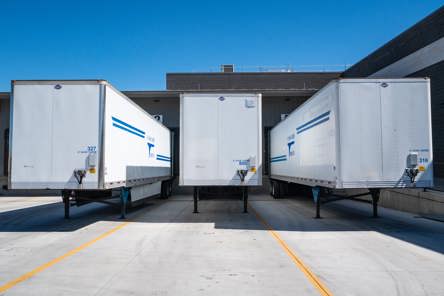Ecommerce businesses today face immense competition. With customers able to easily price compare and switch between online stores, merchants need to go above and beyond to attract and retain customers. One area where ecommerce businesses can stand out is by offering flexible, customized shipping options. Below we’ll explore some of the key benefits of providing tailored shipping choices to meet individual customer needs.
Fostering Loyalty Through Convenience
One of the biggest advantages of customized shipping is increased customer loyalty stemming from the convenience factor. When customers can choose the delivery option that works best for their circumstances, it makes the shopping experience much more pleasurable for them.
For instance, some customers may be willing to pay extra for same-day or next-day shipping if they need an item urgently. For them, quick delivery is worth the premium cost. Other customers may not need the item right away and would prefer cheaper standard shipping that takes 5-7 business days.
By catering to these different preferences, online stores create goodwill through flexibility. Customers remember the businesses that make their lives easier. In a world where customers have endless options of where to shop, convenience is a key differentiator that builds brand loyalty.
Encouraging Higher Cart Values
Another way custom shipping increases customer lifetime value is by enabling larger cart sizes. For example, if a customer wants to buy multiple products but finds the shipping cost prohibitive, they may abandon their cart. However, if offered a discounted shipping rate over a certain order value threshold, they may proceed with the purchase.
Things like free shipping on orders over $50 or tiered shipping rates based on cart price are highly effective at incentivizing customers to add more items to their cart. The overall order value goes up, exceeding the cost of the discounted shipping. This allows the business to generate more revenue.
Custom shipping options also encourage repeat purchases. For instance, members of Amazon Prime get free 1-2 day delivery on millions of items. This perk dramatically improves convenience for frequent Amazon shoppers who can get almost anything they need quickly without thinking twice about shipping fees. The peace of mind that comes with free fast shipping leads Prime members to do more of their shopping on Amazon.
Catering to Customer Preferences
People today expect highly personalized experiences. Tailored shipping aligns well with these expectations as it demonstrates that businesses understand diverse customer needs. When given options like expedited vs standard delivery, customers feel empowered to choose the solution that best fits their situation.
The ability to self-select shipping speed also provides customers with a sense of control. No one likes to feel forced into a one-size-fits-all option that may not work for them. Custom shipping choices allow customers to self-optimize based on their willingness to pay for faster shipping or wait longer to save money.
Customers also have preferences around courier selection. Some may have had poor experiences with a carrier in the past and will go out of their way to avoid that option in the future. Others may live in rural areas where certain carriers have poor delivery coverage. Allowing customers to choose or restrict specific couriers again shows understanding of highly individual needs.
Standing Out from Competitors
Most customers today comparison shop between multiple ecommerce stores before making their purchasing decision. Unique, tailored shipping options are something that can set a business apart from competitors who only offer standard shipping. The customization and flexibility shows customers that the merchant cares about providing an optimal user experience.
For example, giving customers the ability to choose their delivery date and time slot could be a game changing differentiator for stores competing intensely on other dimensions like price and product selection. The one who makes checkout and fulfillment most seamless through bespoke shipping may earn the long-term loyalty of customers.
Niche shipping options also communicate specialization and expertise. For example, a shop selling high-end furniture could offer white glove delivery with assembly and room placement. A store focused on delicate treasures, like porcelain dolls, might provide extra care packaging and handling. These types of customized services speak to the brand’s deep understanding of their specific customers’ needs.
Optimizing Operations
While customized shipping improves the buyer experience, it also provides operational benefits for the selling business. More choice means each customer can select the option that entails the lowest cost and time burden for the merchant to fulfill. This results in greater efficiencies compared to forcing the same standard option on every customer.
For example, if every order shipped via overnight air, it would be extremely expensive for the business; however, only a small percentage of customers truly require next day delivery. By offering the overnight option alongside standard ground and letting each customer choose accordingly, businesses avoid needlessly eating into their margins.
Custom shipping also enables better demand forecasting and capacity planning. For instance, merchants can set cutoff times for different shipping speeds - order by 2pm for same day or by 5pm for next morning. This allows sufficient time to pick, pack and dispatch orders. By spreading out fulfillment over longer windows based on customer selection, the warehouse avoids getting slammed with a spike of orders right before cutoff.
Providing delivery date and tiered shipping also helps regulate order volume so it aligns well with staffing levels. Slow shipping periods can be filled with standard orders, while busier times can accommodate more expedited requests. This balance keeps fulfillment flowing smoothly.
Risks and Challenges
Despite the many benefits, offering custom shipping also comes with some potential downsides ecommerce businesses should be aware of.
One risk is that unconstrained choices may actually overwhelm customers. Too many options can lead to choice paralysis where customers struggle to pick the right option and end up not completing their purchase. To mitigate this, merchants should carefully test different shipping choices and only offer those that meaningfully improve the experience.
Complex customized shipping can also lead to customer confusion later in the process if expectations aren’t properly set. For example, if a customer selects next day air but doesn't realize cutoff times apply, they may still expect to receive their order the following day when that is unrealistic. Clear communication about shipping policies is essential.
From an operations standpoint, flexible shipping puts more burden on warehouses to have enough staff and resources to handle individualized custom orders versus standardized shipments. Investing in fulfillment technology and automation becomes even more important with increased variability.
There are also risks of customers exploiting shipping customization in ways that hurt margins, such as splitting a large order into multiple smaller ones to unlock free shipping thresholds. Software controls will be needed to prevent blatant abuse of tailored shipping offers.
Best Practices for Implementation
When preparing to roll out custom shipping options, keep the following best practices in mind:
- Start with extensive research into your customers’ needs and priorities to identify where tailored choices can add the most value. Surveys, interviews and focus groups can provide directional input.
- Run thorough cost-benefit analysis on proposed shipping options before committing. Ensure their operational viability and positive ROI.
- Phase in new choices slowly and test extensively with sample customer segments before full rollout. Monitor effects on metrics like cart abandonment, order frequency and customer satisfaction.
- Invest in warehouse management, inventory planning and order routing systems to handle flexible order preparation and dispatch. Automate fulfillment processes wherever possible.
- Set clear expectations with customers around shipping policies like cutoff times, unsupported destinations, insurance and more. Make terms and FAQs easy to access.
- Analyze shipping trends over time and adjust offerings accordingly. Double down on popular choices and remove those not being utilized.
- Employ usage limits and dynamic pricing on custom shipping to prevent free shipping abuse and protect margins. For instance, overweight items may incur overage fees.
Customizing shipping speeds, methods, pricing and other delivery options provides significant advantages both for customers and for ecommerce businesses themselves. The operational investments required are well worth it for the loyalty, revenue growth and efficiencies achieved. As expectations rise, tailored shipping will become a necessity to stay competitive in online retail. The merchants who embrace flexibility and choice are poised for success.





